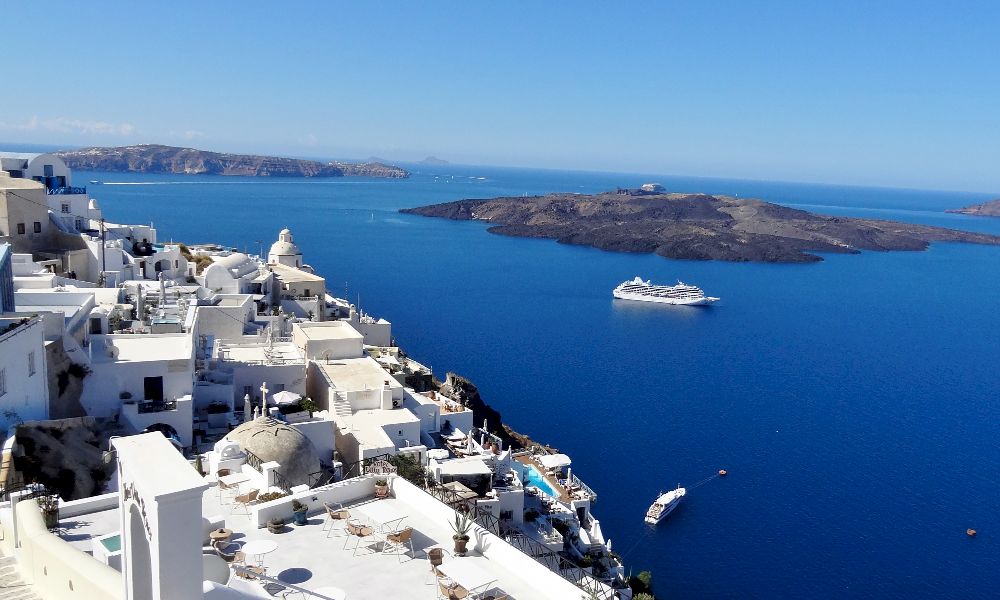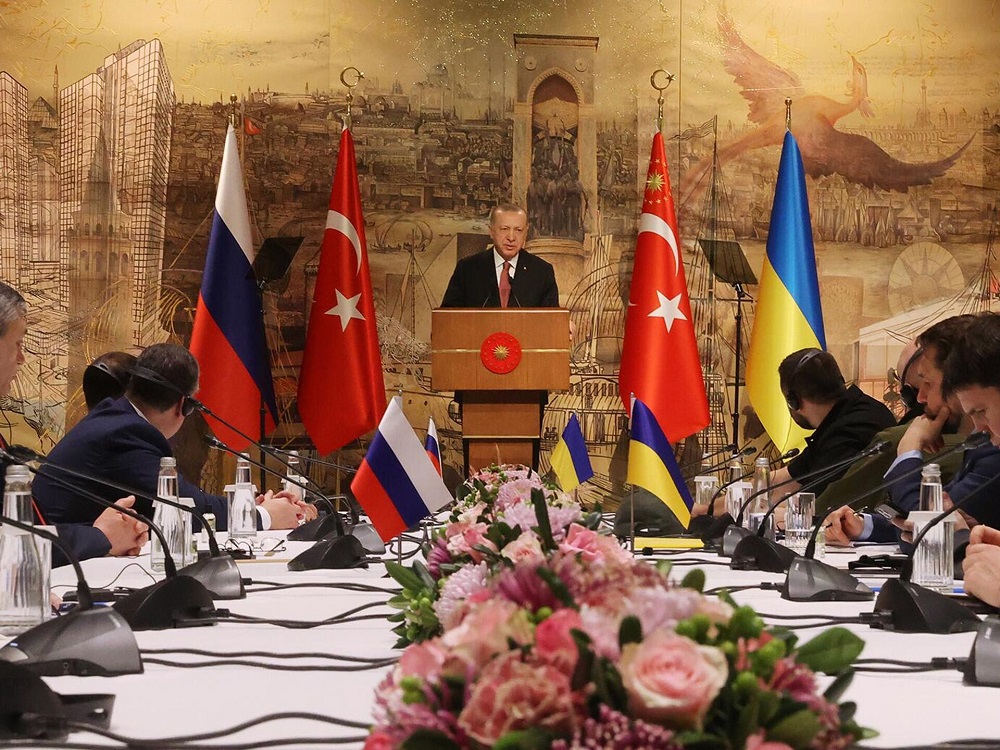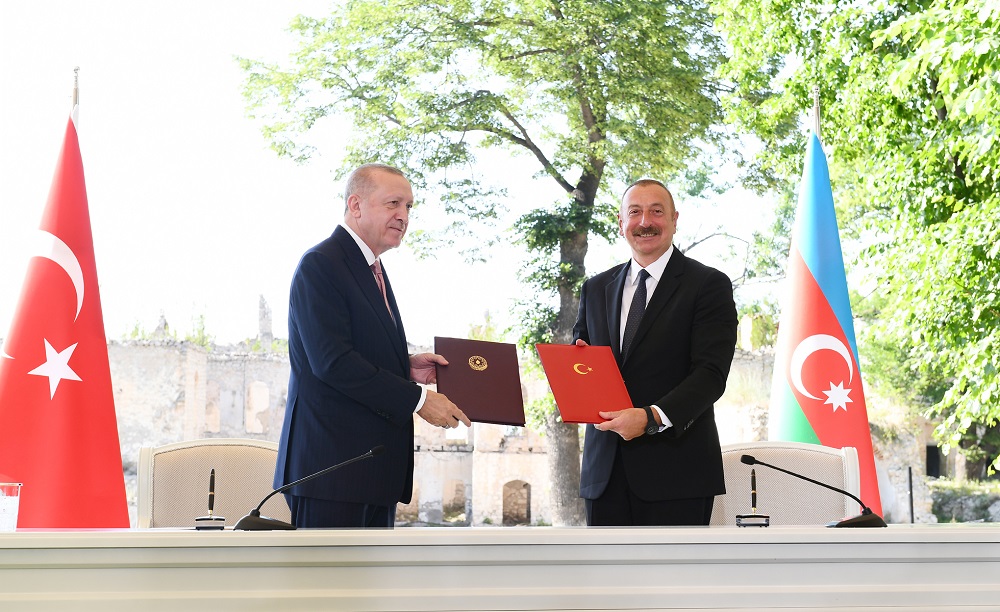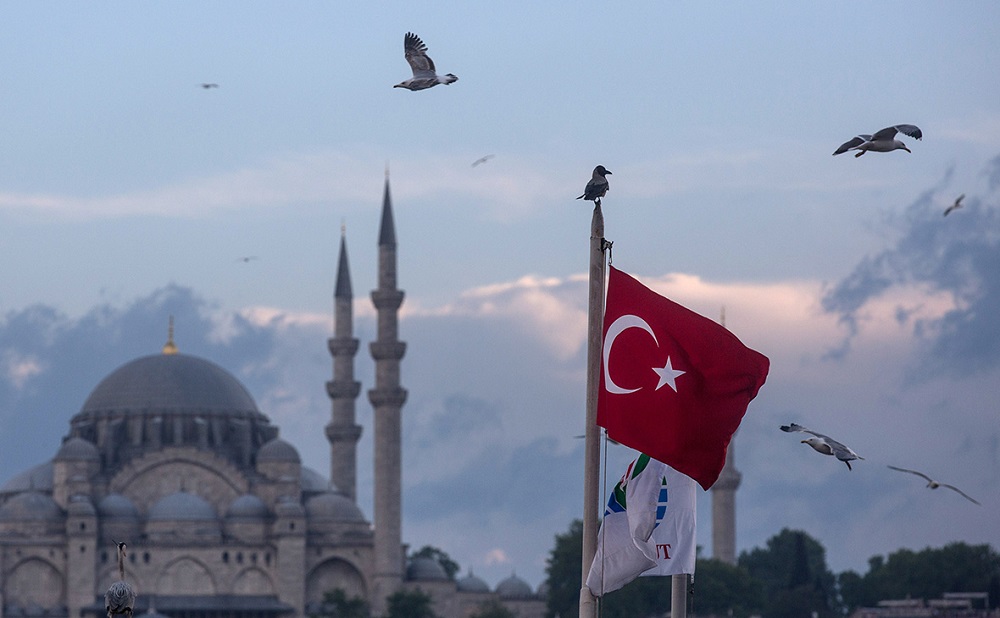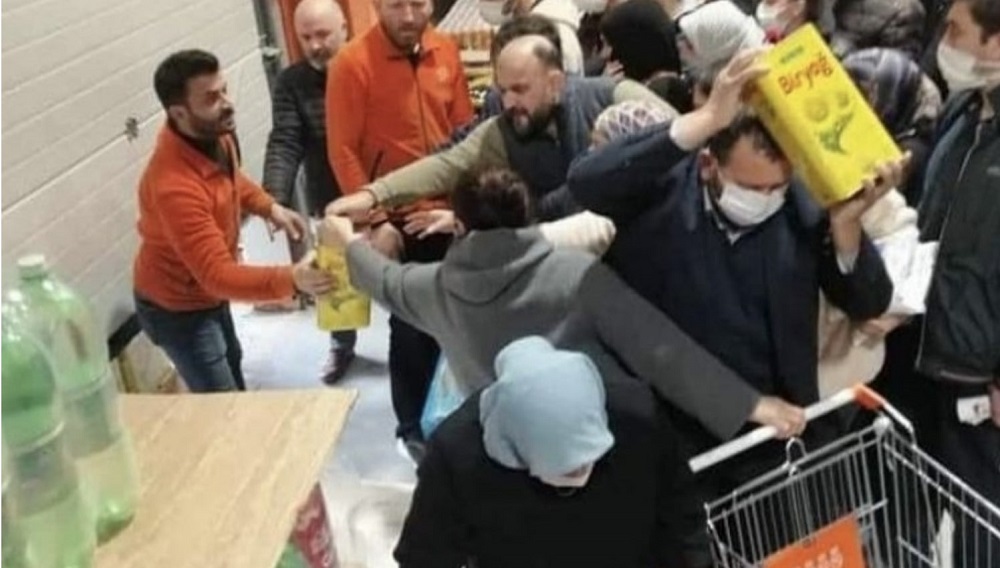Is Turkey helping Russia evade sanctions? Overview from Istanbul
Turkey and Russian sanctions
Immediately after the start of the occupation of Ukraine at the end of February Western nations introduced a large packages of sanctions against Russia. Many leading Russian banks were excluded from the SWIFT international financial transfer system, the purchase of Russian oil transported by tankers was suspended, and EU member countries began to search for alternative sources to Russian natural gas.
But as a member of NATO and an EU candidate, Turkey has not joined most of the economic sanctions against Russia. According to Turkish Foreign Minister Mevlut Cavusoglu, the country will join the sanctions if they are sanctioned by the UN.
- Was a former Azerbaijani official arrested in Poland “by order of Putin”?
- Sex and labor trafficking in Armenia
- “This is an attempt to drag Georgia into a war.” Reactions to sanctions on the Ivanishvili family
Conflict mediator and communication channel
By not joining total sanctions against Russia, Turkey has become for Ukraine and the West a mediator in the conflict, a channel of communication between the parties.
Thanks to the mediation of Turkey, a “grain agreement” was possible with the aim of safe transportation of grain from Black Sea ports despite the ongoing war in Ukraine, which to a large extent prevented a shortage of bread in a vast swathe of the world, above all in East Africa. After the conclusion of this deal world grain prices fell and the world avoided the risk of famine.
In addition, Turkey has become an intermediary in the exchange of prisoners between Russia and Ukraine. The release of Ukrainian soldiers captured while defending Azovstal in Mariupol was secure in this way; Russia returned them to Turkey on the condition that they would live in Turkey until the end of the war and would not return to the battlefield.
Is there a role for Turkey in evading Russia’s sanctions?
Despite Turkey’s role, Ukraine and the West are concerned about whether Turkey become a vehicle for Russia to evade global sanctions.
According to the Financial Times, in July-August 2022 Turkey’s exports to Russia increased by 46% compared to the same period last year. Hürriyet adds that imports from Russia to Turkey have increased by 187% compared to last year.
These figures indicate that at a time when trade relations between the countries of the Western coalition and Russia have come to naught, Turkey has achieved record growth. But these statistics cannot fully answer whether Turkey has indeed become a means for Russia to evade sanctions.
“Mir” and the failed deal
After the international financial transfer system SWIFT stopped working in Russia, cooperation with this country was also suspended by the world’s most popular payment systems Visa and MasterCard. Russian banks switched to their own transfer system “Mir”.
The Mir payment system was created immediately after the annexation of Crimea by Russia in 2014. According to Russian financial institutions, it was supposed to end the hegemony of the aforementioned global payment systems.
But after eight years, the Mir payment system was able to establish itself in only six countries except Russia itself — Belarus, Egypt, Kyrgyzstan, Tajikistan, Venezuela and Cuba.
In April 2022, Turkish Finance Minister Nureddin Nebati said that the introduction of the Mir payment system in Turkey could be beneficial to the country’s economy, and would especially ease the situation for Russian tourists. Turkish President Recep Tayyip Erdogan announced that five major Turkish banks would begin working with Mir.
The Central Bank of Ukraine and European diplomats asked Turkey not to introduce the Mir system, however.
Two large Turkish banks, Denizbank and İş Bankası, fearing Western sanctions, have already announced the suspension of the integration of their systems with the Mir payment system.
Economic agreement with unknown details
Western countries are concerned about another issue. On August 6 a meeting was held in Sochi between Putin and Erdogan, and after this meeting the parties announced an agreement signed between them to expand trade relations. No statements about the details of the agreement followed.
After the Sochi meeting, Erdogan announced the purchase of Russian gas for rubles. But it remains unknown what exactly is meant by the “expansion of trade relations.”
Europe’s concern and Turkish Foreign Ministry statement
In early October, the European Union sent a special delegation to Turkey to study the issue of possible Russian sanctions evasion with the help of Turkey. Mairead McGuinness, the Commissioner for Financial Stability of the European Commission, met with Minister of Finance Nureddin Nebati, Chairman of the Central Bank Shahap Kavcioglu and Minister of Trade Mehmet Mus, as part of a trip to Turkey.
In these meetings, Mickguinness openly expressed concern about the assistance of Turkish companies to Russia in evading Western sanctions.
In response to this visit the Turkish Foreign Ministry held a meeting with the ambassadors of Western countries, where it was reported to them that Ankara was not violating sanctions against Russia.
Plans to build a new gas hub
One of the most important issues in relations between Ankara and Moscow lately has been Putin’s proposal to turn Turkey into a gas hub for transporting Russian natural gas to European countries.
Turkish President Erdogan noted that he is positive about this proposal, and even suggested Trakia as a possible site for the construction of a gas transportation center.
U.S. State Department spokesman Vedant Patel said his country was opposed to the proposal to build a new gas hub and asked Turkey and other allies of the United States not to become a “safe zone” for Russia.
According to Turkish energy expert Ali Arif Akturk, the creation of a new hub for transporting Russian gas is very problematic. He noted that for this it is first necessary to lay new pipelines along the bottom of the Black Sea, because the current Turkish Stream supplies only the amount of natural gas that Turkey needs, and is operating at full capacity. New pipelines mean both additional huge expenses and purely technical difficulties. Akturk stressed that he does not believe in the financial capabilities of Russia while it is conducting active hostilities.
In turn Aleksey Belogoryev, deputy director of the Russian Institute of Energy and Finance, said that at a time when European countries plan to completely stop buying Russian gas, in order to finance such a project that requires huge investments, you first need to be sure about the issue of end consumers. Belogoryev compared this project with Nord Stream 2, and added that no one can guarantee the same fate will not await the new Turkish Stream.
EU customs union: “All member countries must work together”
The European Union is currently considering resuming discussions with Turkey on the issue of sanctions. The main place in these discussions will be occupied by Turkey’s non-alignment with Western sanctions against Russia.
According to the EU Customs Union report for 2022, published in October, this could create problems for Turkey over the union’s membership. The report notes that in order for the union to continue, all its members must act together.
According to Kadri Tashtan, a Marshall Fund specialist, these statements are a warning for Turkey. He added that the doubling of Turkey’s exports to Russia is a serious concern for the European Union.
Turkey and Russian sanctions










